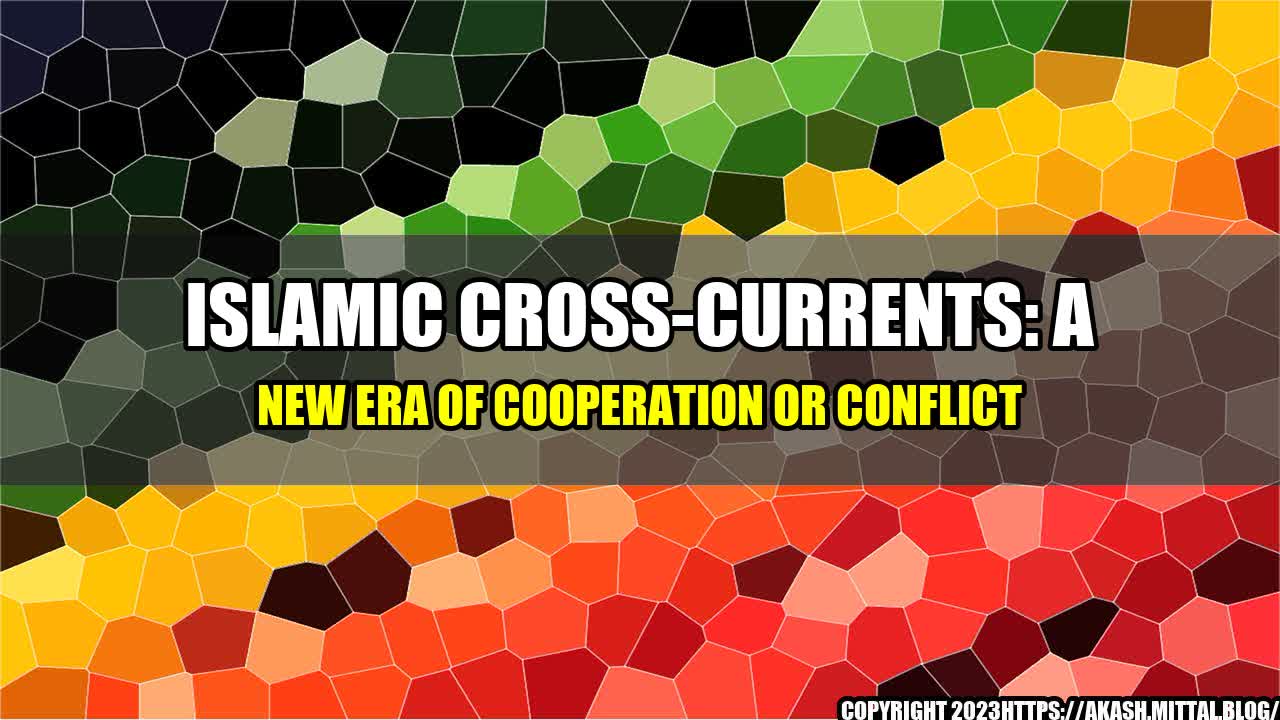It was a warm, humid day in Jakarta, Indonesia. The year was 2013, and I was sitting in a café with my colleague, a young Muslim woman named Sari. We were discussing politics and religion, and I was struck by her passion for both. Sari was a devout Muslim, and I was a non-Muslim from the United States. Despite our different backgrounds, we had a lot in common, and our conversation was a testament to the power of dialogue and understanding.
Our conversation that day touched on many of the cross-currents that define the Islamic world today. We talked about the tensions between Sunni and Shia Muslims, the rise of political Islam, and the impact of the Arab Spring on the region. We also discussed the challenges facing Muslims in the West, including Islamophobia and the perception of Islam as a violent religion.
As our conversation drew to a close, I couldn't help but feel optimistic about the future. Despite the many challenges facing the Islamic world, Sari and I had found common ground and had engaged in a thoughtful, respectful conversation about some of the most complex issues facing our world today.
The Cross-Currents of the Islamic World
The Islamic world is a complex, diverse, and constantly evolving landscape. From the Middle East to Southeast Asia, Muslims are grappling with a wide range of issues, both internal and external.
One of the biggest challenges facing the Islamic world today is the tension between Sunni and Shia Muslims. This tension has its roots in the early history of Islam and has been exacerbated by political, economic, and social factors over the centuries. Today, Sunni-Shia tensions are fueling conflicts in the Middle East and beyond, from Syria and Iraq to Yemen and Bahrain.
Another major cross-current in the Islamic world is the rise of political Islam. This refers to the use of Islam as a political ideology, often in opposition to secular or liberal forms of government. Political Islam has taken many forms over the years, from the Muslim Brotherhood in Egypt to the Taliban in Afghanistan. Today, groups like ISIS and Al Qaeda represent the most extreme manifestations of political Islam, but the ideology is also present in more moderate political movements in countries like Turkey and Malaysia.
The Arab Spring has also had a significant impact on the Islamic world. The uprisings that began in 2010 and 2011 were largely driven by a desire for greater political freedom and economic opportunity. While the Arab Spring has brought about some positive changes, it has also led to increased instability and conflict in the region.
Finally, Muslims living in the West face a unique set of challenges. For many, Islamophobia is a daily reality, and the perception of Islam as a violent religion is widespread. Muslims in the West must navigate these challenges while also balancing their own cultural and religious identities.
A New Era of Cooperation or Conflict?
Given the complex cross-currents in the Islamic world, it is natural to wonder whether we are heading towards a new era of cooperation or conflict. The answer, of course, is not a simple one.
On the one hand, there are reasons to be optimistic about the prospects for cooperation. Muslims around the world are increasingly connected through technology and social media, and this is making it easier than ever for Muslims from different countries and backgrounds to connect and communicate with one another. Additionally, initiatives like the Global Covenant of Religions demonstrate a growing commitment to interfaith dialogue and understanding.
On the other hand, there are also many reasons to be concerned about the potential for conflict. The ongoing Sunni-Shia tensions are a major source of instability in the region, and groups like ISIS and Al Qaeda continue to pose a threat to security both in the Islamic world and beyond. The rise of political Islam also presents a challenge, as groups and individuals who espouse this ideology often reject cooperation with the West and other non-Muslim countries.
Conclusion
While the prospects for cooperation and conflict in the Islamic world are complex and multifaceted, I believe there are three key takeaways from this discussion:
- Dialogue and understanding are essential for finding common ground and addressing the many challenges facing the Islamic world today.
- The rise of political Islam and the ongoing tensions between Sunni and Shia Muslims present major challenges for the region and the wider world.
- There are reasons to be both optimistic and concerned about the future of the Islamic world, but it is ultimately up to individuals and communities to shape that future through their words and actions.
As we continue to navigate the complex cross-currents of the Islamic world, let us remember the power of dialogue, empathy, and understanding. Only through open and honest communication can we hope to build a more peaceful, just, and equitable world for all.

Curated by Team Akash.Mittal.Blog
Share on Twitter Share on LinkedIn